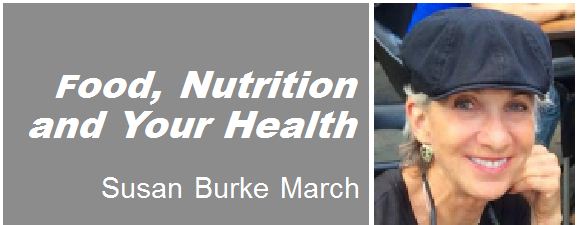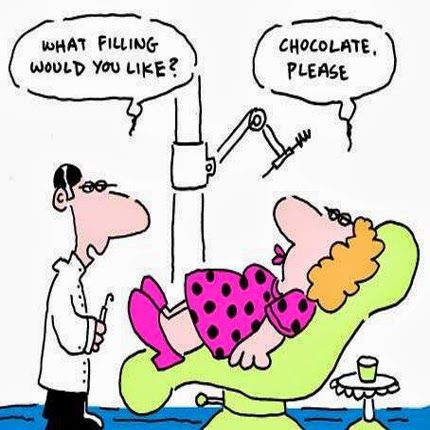Chocolate — You know you love it but should you eat it?
Can they actually prove that chocolate is good for you? Well, it’s mighty hard to do! I just ‘Googled’ “chocolate health” and see a myriad of reports suggesting that chocoholics enjoy better heart health, lower blood sugar, lower blood  pressure. The headlines also link chocolate to less stress and even a stronger libido.
pressure. The headlines also link chocolate to less stress and even a stronger libido.
But like most headlines, they’re designed to get you to click and read. And a careful read reveals that, up to now, research has determined that some chocolates are healthier than others, but none of the studies can prove that chocolate in itself can prevent or cure any disease. However…
Scientists have found that dark chocolate (not milk chocolate) contains healthful and potent plant substances called polyphenols — and the most powerful are called catechins and flavonoids. A study published in The Lancet showed that chocolate contained four times as much catechin, a type of flavonoid, as tea.
 Flavonoids are one of the largest nutrient families known to scientists – who have already identified more than 6,000. Flavonoids help protect plants from environmental toxins and help repair damage. These micronutrients are also found in a variety of fruits and vegetables and black and green tea.
Flavonoids are one of the largest nutrient families known to scientists – who have already identified more than 6,000. Flavonoids help protect plants from environmental toxins and help repair damage. These micronutrients are also found in a variety of fruits and vegetables and black and green tea.
Scientists have identified anti-viral, anti-allergic, anti-inflammatory, anti-tumor and anti-oxidant benefits. When we eat foods rich in flavonoids, it appears that we also benefit from this “antioxidant” power.
And now you can participate in a study to see if these micronutrients found in chocolate can protect you from disease! The problem is, in order to do a randomized, double-blind, placebo-controlled trial, the most scientifically rigorous and valid test, you can’t actually eat the chocolate that’s being studied! I know… what kind of study is this! But wait… it gets better…
The COcoa Supplement and Multivitamin Outcomes Study (COSMOS) is “a clinical trial that will randomize 18,000 men and women across the U.S. The study will investigate whether taking daily supplements of cocoa flavanols (600 mg/day) or a common multivitamin reduces the risk for developing heart disease, stroke, and cancer.
 “Although results from previous studies have been promising, the health benefits of taking these supplements have not yet been proven. The only way to determine whether or not cocoa flavanol and multivitamin supplements help maintain health is by conducting a large-scale trial, such as COSMOS.”
“Although results from previous studies have been promising, the health benefits of taking these supplements have not yet been proven. The only way to determine whether or not cocoa flavanol and multivitamin supplements help maintain health is by conducting a large-scale trial, such as COSMOS.”
Women 65 and older, and men 60 and older who have not had a heart attack or stroke or had cancer in the past two years (excluding skin cancer) are invited to participate. Every day for four years you take study pills, which will contain cocoa extract or placebo, plus a multivitamin or placebo. And, you can still eat real chocolate while participating in the study! Ah well, sacrifices must be made in the name of science.
To learn more about enrolling in the study, click here.
Cocoa or cacao — is there a difference?
Yes… and No.
All cocoa powder comes from the cocoa bean, which without the shell is called the cocoa nib (also known as the cacao nib). But, what most people know as “cocoa powder” bears little resemblance to real cacao powder. Here are some interesting facts about cacao and cocoa:
The cacao pods contain the beans: the pods are fleshy, oval-shaped. The beans are harvested, fermented, and dried.
 Cacao powder is made by cold-pressing unroasted cocoa beans — this process sustains the living enzymes and removes the fat (cacao butter).
Cacao powder is made by cold-pressing unroasted cocoa beans — this process sustains the living enzymes and removes the fat (cacao butter).
Real cacao powder is one of the highest food sources of antioxidants including magnesium, essential fatty acids, iron, copper, zinc, sulfur, and calcium. Like all plant foods, cacao is cholesterol-free, and the fat is mainly saturated but is a good source of omega-6 and omega-9 fatty acids.
Cacao refers to a wide range of products derived from cacao beans, including raw cacao powder, cacao nibs, and cacao butter, or the pure, cold-pressed oil of the cacao bean. 100% cacao is very bitter.
When the beans are roasted and processed into powder, then it’s called “cocoa powder.” Often, the commercial cocoa powder has additives and sweeteners.
Dutch-process cocoa is made from alkalized cocoa (cacao) beans to neutralize their acidity, and it’s dark brown. Natural cocoa powder is reddish-brown and is simply roasted cocoa (cacao) beans.
Ecuador is the home to some of the best chocolate in the world and there are a number of small, organic growers marketing their products in Cuenca and around the country.
 In fact, the International Chocolate Awards 2016 awarded Ecuador’s Pacari Chocolate first prize for the best dark chocolate bar! They earned additional medals including one for their dark infused bars — a personal favorite of mine is their Passion Fruit or Maracuya.
In fact, the International Chocolate Awards 2016 awarded Ecuador’s Pacari Chocolate first prize for the best dark chocolate bar! They earned additional medals including one for their dark infused bars — a personal favorite of mine is their Passion Fruit or Maracuya.
Another favorite is ARAWI (the word means “poetry” in Quechua) who make a variety of cocoa products.
I use their Polvo de Cacao in my baking, including my chocolate biscotti with almonds. Email me for the recipe susanthedietitian@gmail.com
There are dozens of brands of chocolates that aren’t worth the calories, and eating these candies regularly could be a prescription for added weight. But, choosing a reliable source of dark chocolate could actually be good for your health, and for your friendships.
Bring some Ecuadorian chocolate as gifts for friends and family. They won’t forget you. As someone said, “There’s nothing better than a friend unless it’s a friend with chocolate.”
Sources
COcoa Supplement and Multivitamin Outcomes Study. COSMOS Trial. http://www.cosmostrial.org/index.html
Scientific American. Fact or Fiction?: Chocolate Is Good for Your Health. https://www.scientificamerican.com/article/fact-or-fiction-chocolate-is-good-for-your-health/
The Lancet. Chocolate contains additional flavonoids not found in tea. http://www.thelancet.com/journals/lancet/article/PIIS0140-6736%2805%2970599-7/fulltext




















